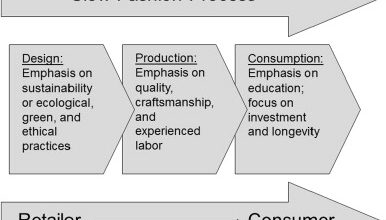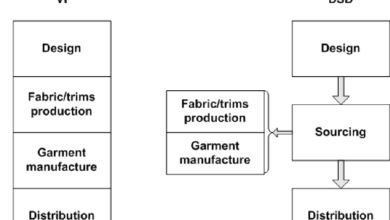The Benefits Of Organic Cotton: A Sustainable And Healthier Choice
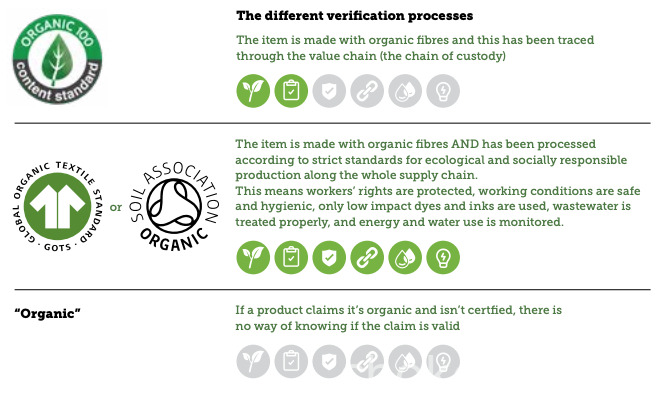
Welcome to Chokerclub, your go-to resource for all things organic cotton and its incredible benefits. In this article, we will explore the numerous advantages of choosing organic cotton over conventional options. From its environmentally-friendly production methods to the health benefits it offers, organic cotton is a sustainable and healthier choice for you and the planet. Discover how organic cotton supports sustainable farming practices, reduces water consumption, and protects biodiversity. Learn about its superior softness, breathability, and hypoallergenic properties, making it perfect for those with sensitive skin. Join us as we delve into the world of organic cotton and uncover why it’s a game-changer in the textile industry.
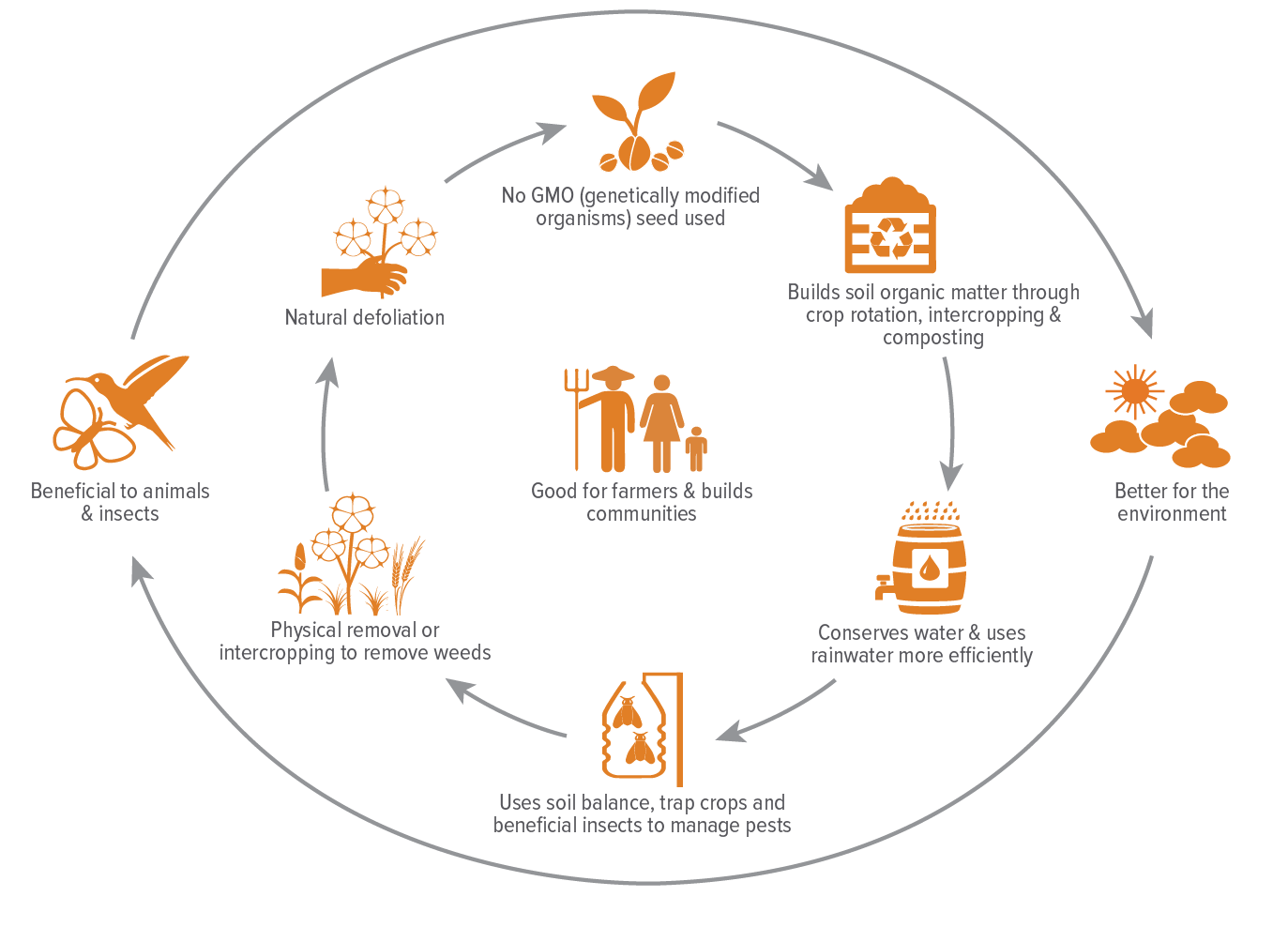
| Key Takeaways |
|---|
| Organic cotton production uses eco-friendly practices and avoids harmful chemicals. |
| Organic cotton is softer, more breathable, and hypoallergenic compared to conventional cotton. |
| Wearing organic cotton clothing reduces the risk of irritation and allergies. |
| Organic cotton supports sustainable farming, reduces water consumption, and protects biodiversity. |
| Investing in organic cotton helps combat climate change and promotes fair trade. |
| Buy organic cotton products from reputable brands and follow proper care instructions for longevity. |
I. The Benefits of Organic Cotton
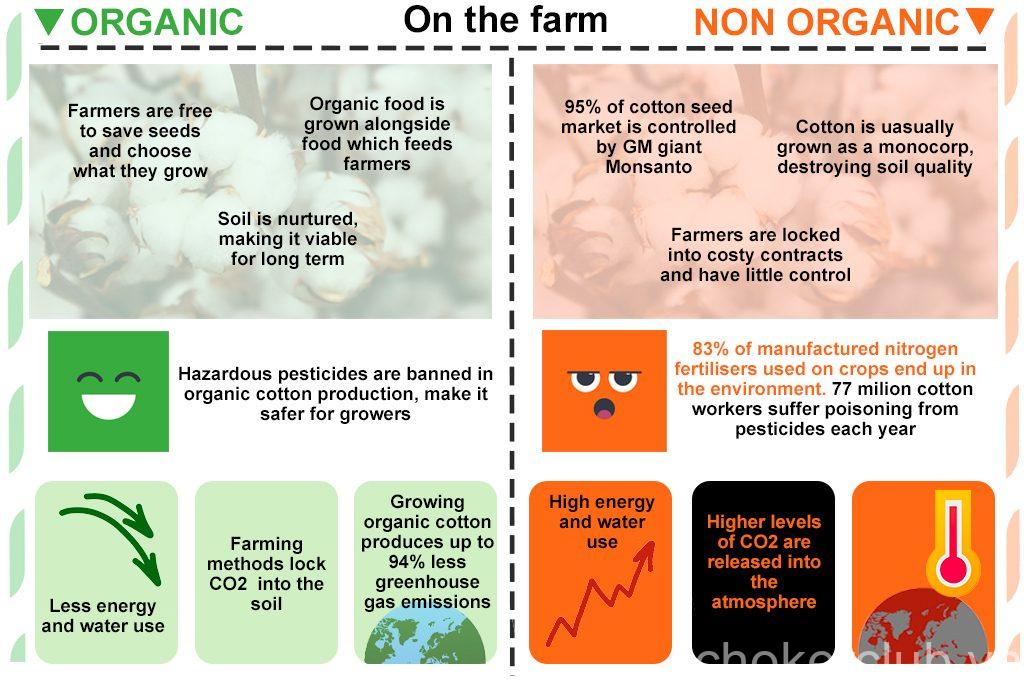
Organic cotton is renowned for its exceptional comfort and softness, making it a delightful choice for clothing and bedding. Unlike conventional cotton that often contains residual chemicals from harsh pesticides, organic cotton is grown without the use of synthetic fertilizers or genetically modified seeds. As a result, the fibers are pure and untouched by harmful substances, providing a gentle touch against the skin.
| Key Takeaways: |
|---|
| – Organic cotton offers superior comfort due to its chemical-free cultivation methods. |
| – The absence of residual chemicals makes organic cotton exceptionally soft. |
II. How Organic Cotton is Produced
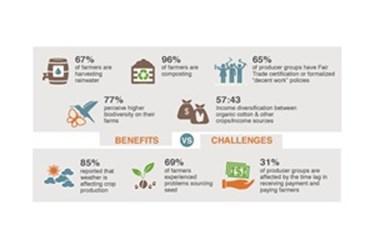
Organic cotton is produced using sustainable and environmentally friendly farming practices. Unlike conventional cotton farming, which heavily relies on synthetic fertilizers and pesticides, organic farming techniques prioritize the use of natural, organic inputs. Farmers focus on building healthy soil by using compost, cover crops, and crop rotation to maintain soil fertility and structure. This promotes biodiversity, reduces soil erosion, and minimizes the impact on surrounding ecosystems.
| Key Points: |
| – Organic farming methods prioritize natural and organic inputs. |
| – Crop rotation and cover crops help maintain soil fertility and structure. |
| – This promotes biodiversity and minimizes environmental impact. |
III. The Environmental Impact of Organic Cotton
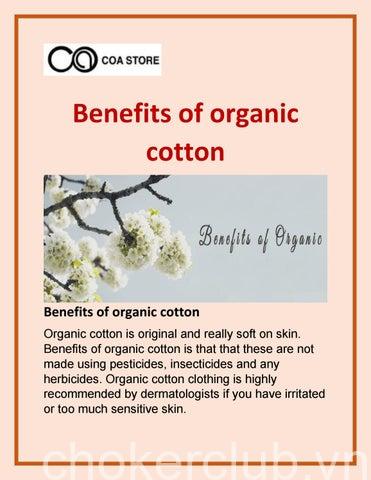
One of the key environmental benefits of organic cotton is its reduced chemical usage during production. Unlike conventional cotton, which relies heavily on pesticides and synthetic fertilizers, organic cotton farming embraces natural and sustainable practices. By eliminating the use of harmful chemicals, organic cotton protects the surrounding ecosystems from pollution and minimizes soil and water contamination. This not only benefits the farmers and their communities but also contributes to the overall health of the environment.
IV. Health Benefits of Organic Cotton
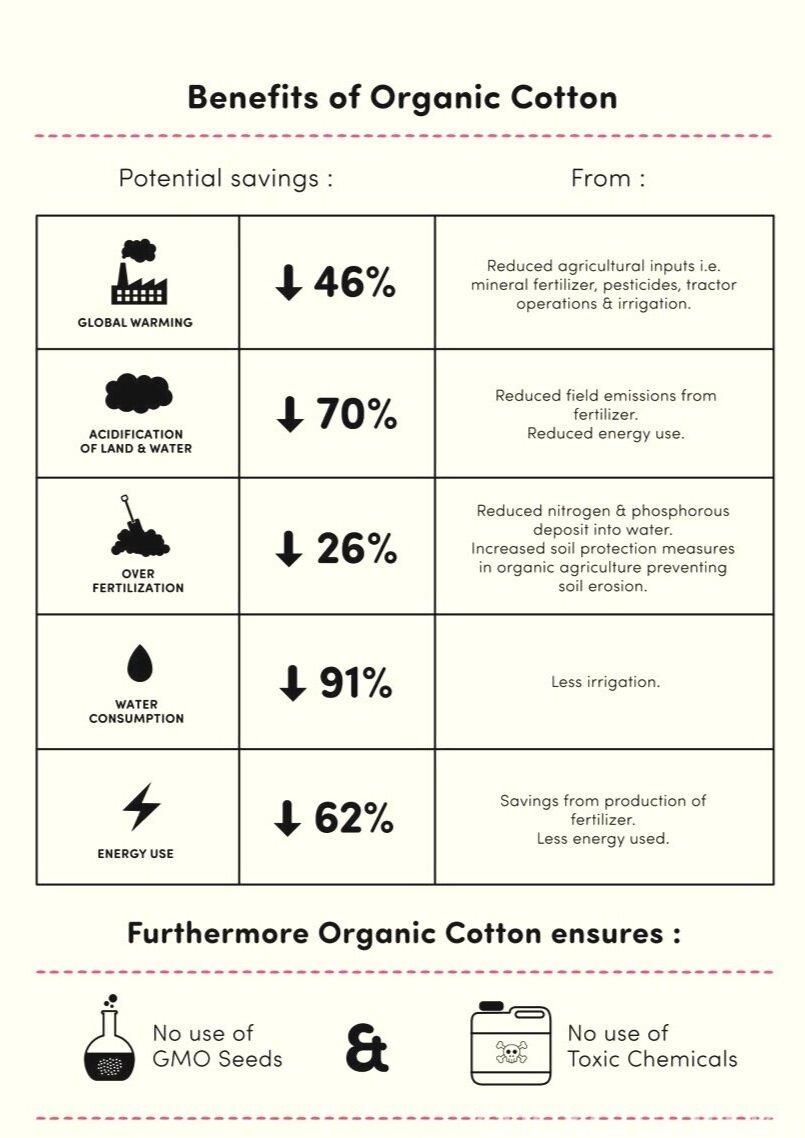
1. Improved Skin Health
Organic cotton clothing is gentle on the skin and reduces the risk of irritation and allergies. Synthetic fabrics, such as polyester, often contain chemicals that can cause skin reactions and discomfort. In contrast, organic cotton is free from harmful chemicals and pesticides, making it ideal for individuals with sensitive skin or conditions like eczema. By choosing organic cotton, you can enjoy the benefits of natural fibers that allow your skin to breathe and avoid unnecessary skin irritations.
“I used to suffer from constant itchiness and rashes when wearing regular cotton clothing. Switching to organic cotton has been a game-changer, as my skin feels much calmer and healthier.” – Sarah, organic cotton advocate
2. Hypoallergenic and Allergen-Free
For people with allergies or respiratory conditions, organic cotton can provide relief. The absence of harsh chemicals and synthetic dyes in organic cotton products reduces the risk of triggering allergic reactions. It is a hypoallergenic fabric that does not harbor dust mites, a common allergen. By choosing organic cotton bedding and clothing, you create a healthier environment that promotes better sleep and overall well-being for everyone, particularly those with allergies or asthma.
V. Comparing Organic Cotton to Conventional Cotton
| Comparison Factors | Organic Cotton | Conventional Cotton |
|---|---|---|
| Quality and Comfort | Softer, more durable fabric | Potential roughness, less durability |
| Environmental Impact | Sustainable farming practices, no toxic chemicals | Heavy use of chemicals, harmful to environment and health |
“Organic cotton offers superior quality and comfort compared to conventional cotton, thanks to its longer and stronger fibers. Its breathability and hypoallergenic properties make it a great choice for those with sensitive skin.”
VI. Buying and Caring for Organic Cotton
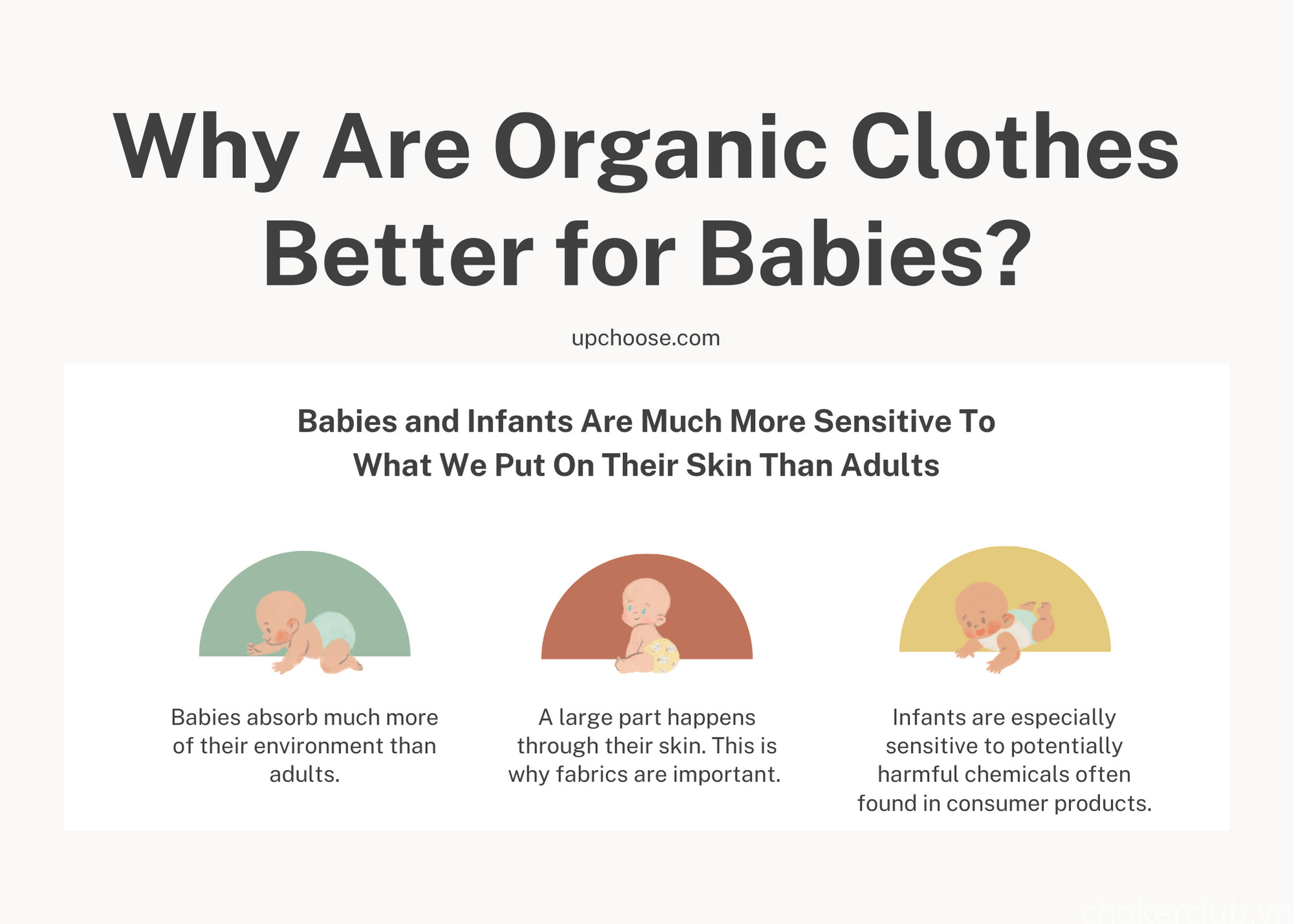
| Points to Remember |
|---|
| Look for certifications like GOTS when buying organic cotton products. |
| Support ethical and sustainable brands that prioritize organic cotton. |
| Consider purchasing from online marketplaces specializing in sustainable fashion. |
| Wash organic cotton items in cold water with eco-friendly detergent. |
| Air dry whenever possible and use low-to-medium heat when using a dryer. |
| Avoid bleach and harsh chemicals that can damage the fabric. |
| Iron on a low heat setting, preferably when damp. |
“Choosing organic cotton is not just a fashion statement; it’s a conscious decision to support sustainable practices and prioritize your health and well-being.” – Chokerclub
VII. Conclusion
Organic cotton presents a sustainable and healthier alternative to conventional cotton. By opting for organic cotton products, we can make a positive impact on the environment and our own well-being. The benefits of organic cotton are vast, ranging from its eco-friendly production methods that avoid harmful chemicals to its softness, breathability, and hypoallergenic properties. Wearing organic cotton reduces the risk of skin irritation and allergies, making it an ideal choice for those with sensitive skin. Additionally, choosing organic cotton supports sustainable farming practices, reduces water consumption, and preserves biodiversity. By investing in organic cotton, we contribute to the fight against climate change and promote fair trade. To enjoy the full benefits of organic cotton, it is important to purchase from reputable brands and follow proper care instructions to ensure the longevity of the products. Make the switch to organic cotton today and experience the difference it can make for both yourself and the planet.






